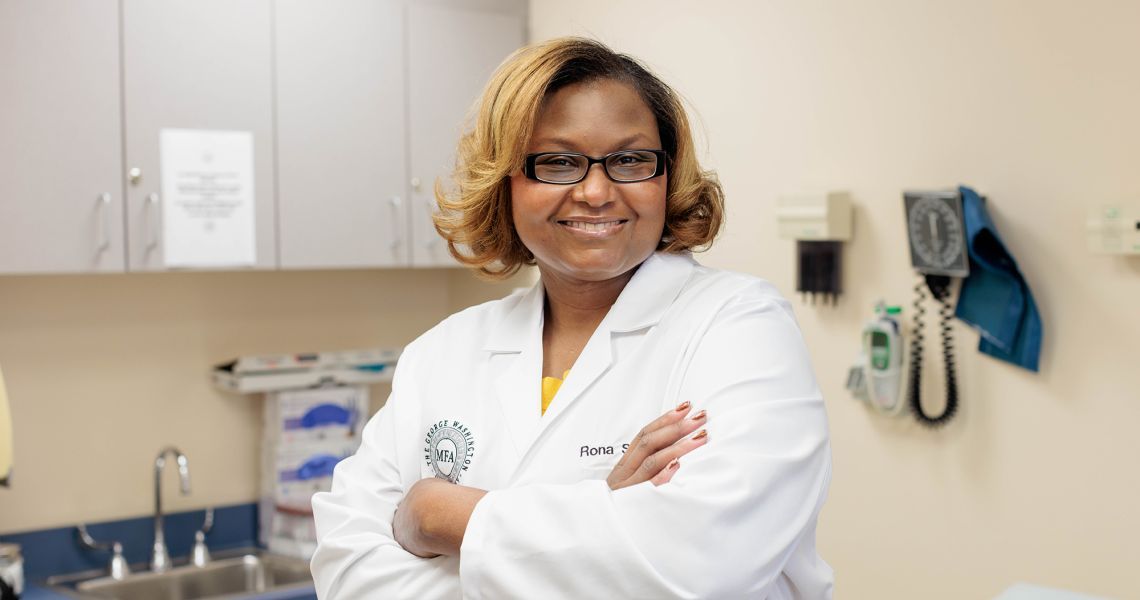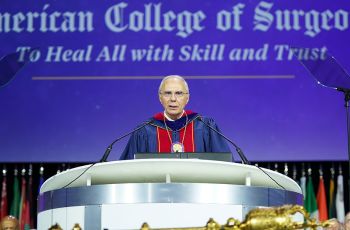Seeing a primary care physician (PCP) is about more than just an annual exam or treatment for the occasional bout of sickness. A PCP, says Rona Smith, MD, a board-certified internal medicine physician with the George Washington University (GW) Medical Faculty Associates (MFA), can be a valuable resource for information, and, thanks to routine visits, they’ll have an excellent picture of your health and can easily spot anomalies. Here, Smith explains the ins-and-outs of primary care and why having a PCP is important.
What is primary care, and what does a primary care physician do?
Smith: Primary care is generalized medicine aimed at caring for the everyday patient needs as well as helping direct patients to specialty care. It is the collaborative effort between the patient and physician to care for the patient’s overall health. Primary care physicians provide patient education, preventive health screening, diagnosis and treatment of acute and chronic diseases, and health maintenance.
Should you only see a primary care physician when you’re sick?
Smith: It is important to see your primary care physician more often than just when you are sick. Although sick visits are important, seeing your physician for your annual exam is just as important. This annual exam allows you to have your overall health assessed. These exams are normally performed to help establish a baseline of health and determine which areas need improvement. By completing your yearly health exam, you help your physician establish a rapport with you and determine your health status when you aren’t ill. When you are sick, you can see your physician to help diagnosis and treat the condition. For example, with regular visits, your doctor may help you uncover and treat conditions such as hypertension or high blood pressure. High blood pressure may present without any symptoms. However, early detection and treatment helps reduce the risk of kidney disease or stroke.
If you see a primary care physician, will you have access to tests and procedures?
Smith: Primary care physicians are able to perform an assessment of you, the patient, and then determine which lab tests or imaging will help narrow their differential diagnosis or problem list. Many offices have the ability to draw blood at the office or a nearby site, which can be convenient for the patient. For example, with a yearly exam, your doctor may want to assess your kidney and liver function or screen you for anemia (low blood count). These are blood tests that can be performed in the office, depending on the location. At GW Primary Care in Alexandria, we have a lab technician onsite to draw bloodwork ordered by the physician. Usually, specialty tests such as chest x-rays, CT scans, or mammograms are done offsite, and your doctor can write an order for these evaluations.
How does the GW MFA care for patients who are thinking of visiting a primary care provider?
Smith: The GW MFA has a number of locations featuring primary care providers. GW Primary Care in Alexandria is a new location that recently opened in the Alexandria, Virginia, area. Patients can book appointments online or call the office. I am one of the providers at this clinic and I look forward to seeing patients in order to collaborate in their health goals, educate them about preventive medicine, and act as a resource for navigating health maintenance.
To make an appointment with a primary care physician, visit GW Primary Care or call 202-741-3000.




